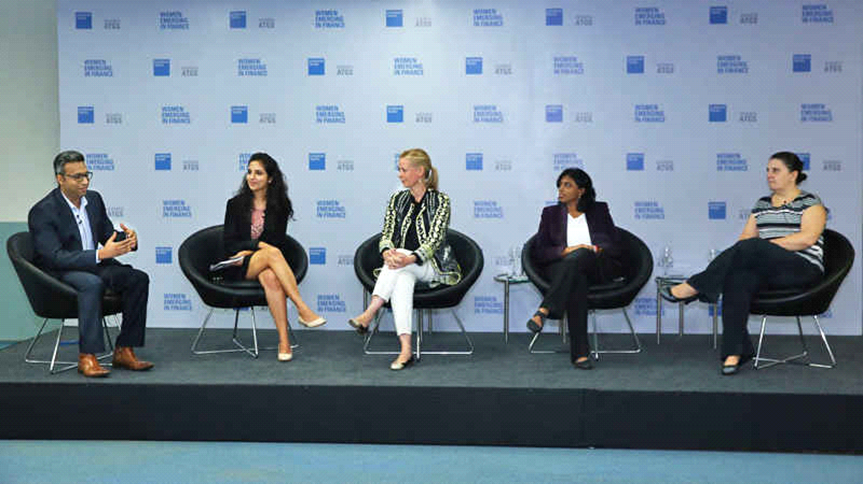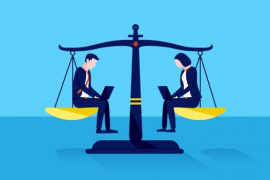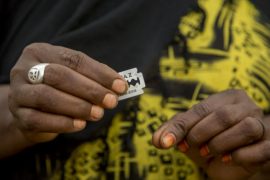Equal rights for women in Work Places
By: Faridah Mugimba Kakyama
Women have fought to achieve equal rights in many parts of Africa. But like in other regions of the World, a woman’s status varies by country and region.
In some organisations, women are regarded as being the equals of men, but their roles are nevertheless different. Some women with the same qualifications exactly similar to those of men are still being paid less than men in similar positions. Men find it easier to be accepted in roles, unlike women who have children and maternity leave. The introduction of paternity leave in some developed countries has helped to an extent to bring some attention to the role of women in family upbringing while maintaining their roles at the same time.
The care of children, the sick and the elderly are generally viewed as the responsibility of women. With poor access to childcare facilities or health and support services in many African regions, caring for family members can take up a lot of a woman’s time, this affects their effective productive contribution towards income generation towards their families and the economy at large.
The Italian parliament is considering a law that, if approved, will grant women who experience dreadful period symptoms paid menstrual leave. Instead of using sick days, companies would have to give female workers an additional three days off each month; this would allow women to stay home from work whenever they experience extremely painful menstrual cramps. This action will show that the world is now beginning to understand women challenges compared to their male counterparts in a working environment.
Women in Agriculture and Industrial Sectors
In many parts of Africa, individual small scale and labour on large scale agriculture production farms are still being considered as a highly women’s role. However, women recently in many fast-growing economies have started taking up physical production roles in the industrial sector in order to earn higher incomes, which puts their family’s standards of lives in better positions.
In some countries, women are still not equal in law. Even where they are legally equal to men, it is common for decisions to be taken by male heads of households or male leaders.
But providing girls with a good education is vital for a country’s development. When women are equipped with learning and share decisions about families and livelihoods, the productivity of a society rises and this changes the quality of lives in societies and our Economies. The role of women in our economies can never be underestimated.
Women in Business and Entrepreneurship
The past few years have seen a rise in the number of women-owned businesses in Africa. Be it in IT, oil, mining, or in the aviation sector, female entrepreneurs are breaking gender stereotypes and showing that what a man can do, a woman can also do, if not better. Bold and fearlessly ambitious, these are some of the female business leaders who shape the future of the continent and inspire not only countless other women but also anyone who dares to dream.
It is no longer uncommon to find women running successful businesses in Africa and across the world alongside having a family. These women are happy to embrace a new set of challenges brought by such freedom.
Looking at most sectors across the economy, women today are still faced with issues of access, and it is more difficult for women to access support services to enable them to set up businesses. For the lucky ones, as soon as they have their businesses set up it then becomes a question of accessibility to markets and investment opportunities to sustain these businesses.
Top Women in Professional Roles
Where women undertake paid work, there is often a wage gap between their earnings and those of men. With jobs mostly entailing the same work, this gap can only be attributed to gender discrimination. In certain sectors, women also face barriers to joining trade unions or doing business as self-employed individuals.
Women in leadership roles play a very big part in empowering their counterparts, the more women we have and help in leadership roles the more our challenges will be addressed. The future looks more positive for women now than it was a few decades before.
Women in Politics
The increasing number of women in government positions is also of significant benefit in effecting change on vital issues. Some nations – such as Rwanda and Tanzania – have created a constitutional requirement for the government to include a certain number of women.
Even where there are no quotas, African governments are beginning to include more female politicians. In Liberia, Ellen Johnson Sirleaf became the first woman to be President of a modern African nation. In 2012, Joyce Banda became Malawi’s first female President.
Women today find themselves staring at an interesting conundrum: they enjoy more rights today than perhaps ever before, and yet there seems to be the “glass ceiling” of patriarchal tradition. Women still earn less on average than men in the business world. Iconic Women like Michelle and Oprah have used their positions and roles to air women problems and they have made a very big impact on the new women generation for future leadership in our communities.
The United States reached the level of attempting to swear in a female president in 2017.
This is a very positive sign towards women efforts and achievements so far, But we still have a long way to go.
It seems that progress is slow on the gender front, though it was less than 100 years ago that women first enjoyed the right to vote. But just what are women doing today?
While female competitiveness in the workplace seems to be on an upward trend, it still has not matched the income level of male counterparts. In politics, women have competed in presidential primaries and have yet to win the presidency. There is still a lot of women have to overcome even in a society which prides itself in ideals of equality. Yet perhaps more promising are women in the global world.
In the United Kingdom, we have just witnessed the second era of women leadership after a very long period of time in one of the most democratic countries in the World, It’s still very slow but this is an indication that women leadership in different sectors will continue on a greater scale in future across the whole world.
The voice of women in many parts of the world is emerging in a very powerful way, both to promote the individual expression of the female gender, and desperately needed education. If there is one thing women in politics have accomplished it is forming a collective voice, organizing in a way that is finally able to break the seemingly impenetrable barrier of male dominance, especially in changing political climates like that seen in the middle east.
Thus, women in politics mean a lot of things: in a broader aspect, it means giving women an incentive, providing women with the foundations of knowledge and education with which they are able to better combat inequality based upon gender. On the other hand, in terms of gender here at home, the task is somewhat different: it isn’t so much social convention which women need to overcome but merely the discrepancies in a system which is more prone towards embracing change when it is found necessary.
Women in the Middle East
Today, the plight of women is significantly improving in most Muslim countries which shows a significant move towards change. Perhaps thanks in part to international interests of the past decade; women are finding more freedom in societies whose male-dominated leadership have vested interest in the suppression of women. Burka laws are easing up in these countries, as Sharia law slowly loses its vice hold on the Muslim Middle East. Where, for instance, does one distinguish between religious criticism and promotion of women’s’ rights? It some times becomes a bit complicated to highlight women’s rights and above very strong religious beliefs that have been existing for centuries.
It seems like this line often becomes blurred, not solely because of the present theocracy in the Muslim world. Harder still is to argue against the fact that women themselves very often suggest that social restrictions are justified because of either cultural or religious mandates. However, there is a lot of effort to promote the role of women in employment and leadership in the Muslim world.
Allowing women in Saudi Arabia to start driving is one the biggest step taken in the history of fighting for women’s right.
Awareness is that, while we may still feel that there is still a very thick glass ceiling that patriarchy exists towards women recognition in our societies especially being considered for leadership roles, we cannot deny that progress has been made. Perhaps women in the workplace will soon match, and even overcome, income average earnings in the near future.
Women are the majority and in most cases, we are not using that to our advantage. In most cases, there will be some diverse reasons to why we lag behind compared to our male counterparts.
Women should work together to positively change the policies of our countries to better cater for us. Our societies have long been that of deeply entrenched patriarchy to an extent that some of our women see it as a normal thing to lag behind our male counterparts especially in employment and business.
Women should know that they have the same capability to perform on an equal level in these sectors as their male counterparts. We still have a very long way to go but with persistence and continuously highlighting women problems, at the same time building confidence in the young generation will eventually achieve effective change.




